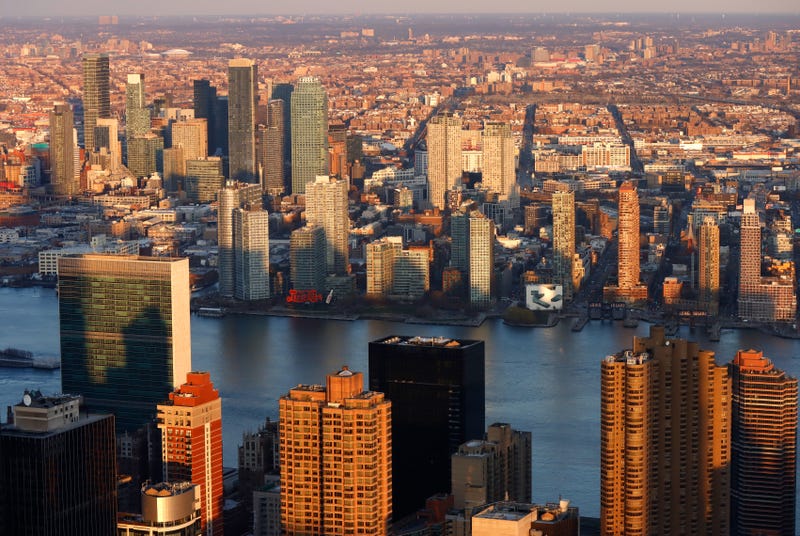
NEW YORK (1010 WINS/WCBS 880) -- New York City's Rent Guidelines Board proposed the possibility of allowing nearly 16% rent hikes on two-year leases for rent-stabilized apartments.
In a report issued Thursday, the panel also floated the idea of a rent hike of 8.25% on one-year leases for rent-stabilized apartments.
The eye-popping numbers in the analysis are by no means final—they are being put out as potential increases the board could approve. In the end, annual rent increases are unlikely to reach such heights.
But the proposals are a sign of the times—and they signal a tough fight ahead for tenants living in the roughly 1 million rent-stabilized apartments that are supposed to be protected from market forces, said Council Member Lincoln Restler.
"It is unconscionable that an increase of this proportion would even be considered," Restler said.
"It would lead to more evictions, more homelessness and more families that are extremely rent burdened," the councilman added.
The mayor's office is trying to tamp down criticism of the report, noting that the panel looked solely at the increased costs landlords are dealing with and correlated rent jumps.
After New York's Working Families Party called the numbers in the report "outrageous," the mayor's spokesman, Fabien Levy, tweeted a response Thursday: "The 16% number put out by the Rent Guidelines Board today is part of a standard annual report, only reflects one assessment of landlords’ increased costs, and does NOT in any way represent a recommendation from the RGB or this administration."
The Rent Stabilization Association, which represents owners of the rent-regulated apartments, said landlords are struggling just like tenants as they deal with a "market basket of costs," including increases in insurance rates, property taxes and operating costs. A 19.9% increase in the cost of fuel, used for things like heating, has hit owners especially hard.
Just last year, the Rent Guidelines Board allowed the biggest rent increases for rent-regulated tenants in nearly a decade—5% on two-year leases and 3.25% on one-year leases.
Restler said these types of rent increases make it harder and harder for working families to get by in the city. He said he's holding Adams accountable because the mayor appoints all members on the Rent Guidelines Board.
"Right now, tenants are being squeezed on every angle," he said. "As cost of living goes up, as inflation goes up, we need to freeze rents where they are."
Landlord and tenant groups will lobby over the rent hike, as they do every year ahead of the vote. The board's preliminary vote on the proposed increases will be held in May.



